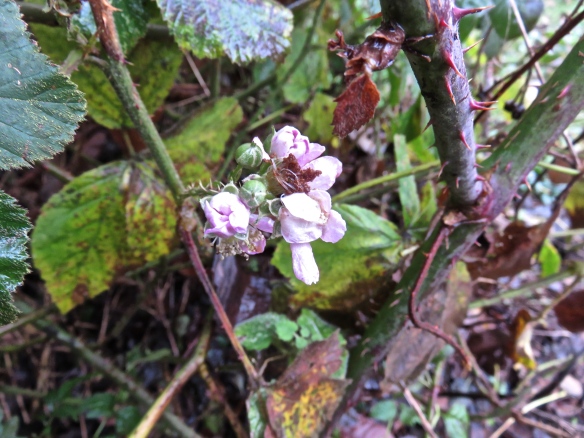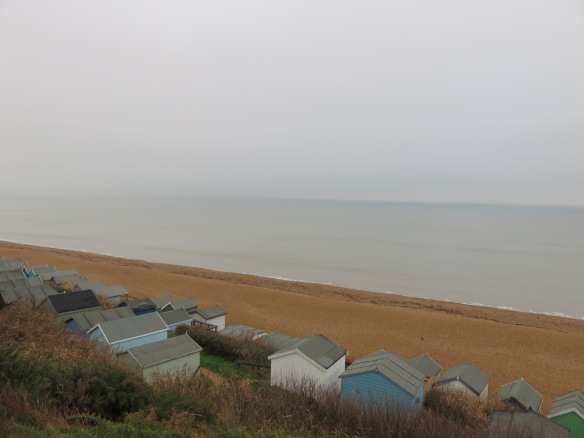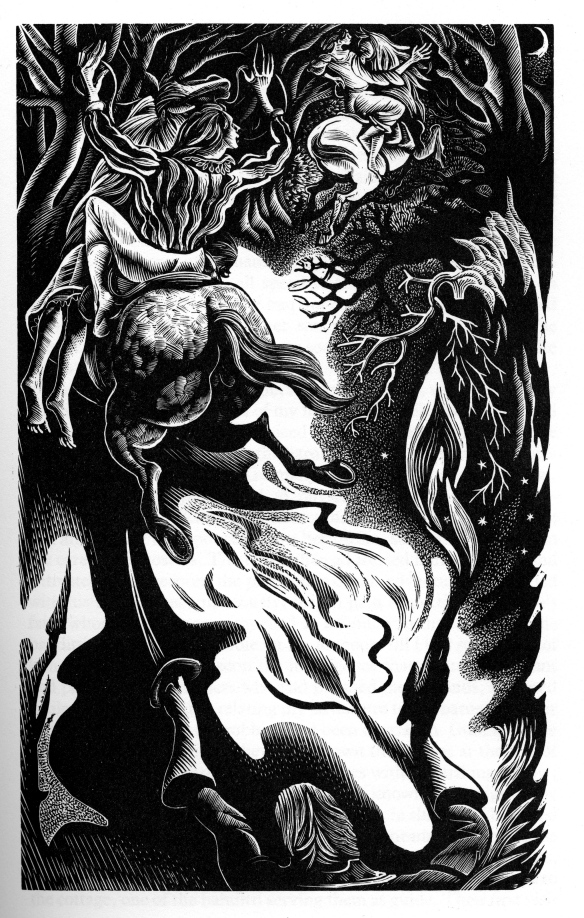One of the benefits of our mild Autumn has been that non-hardy plants, like this fuchsia  Quasar, are still out in the garden. Normally a delicate pink and lilac on a white ground, this picture was my selection for the third day of my Black and White Flower photograph submissions.
Quasar, are still out in the garden. Normally a delicate pink and lilac on a white ground, this picture was my selection for the third day of my Black and White Flower photograph submissions.
Edward Sherred, landscaper, called this morning with his wife. Every couple of years he had pruned the tops of the variegated hollies in the front garden. Our predecessors had the benefit of free tree surgery and his wife used the branches to make Christmas wreaths. Having enjoyed a similar arrangement at Lindum House I was happy for us to continue the process. He did a good job.


 It was a dank day for my Hordle Cliff top walk this morning. Stinging nettles and sticky willies were sprouting again in the hedgerows. Blackberries had been conned into producing more blossom, and a brave little dandelion had forced its way up through a driveway’s gravel.
It was a dank day for my Hordle Cliff top walk this morning. Stinging nettles and sticky willies were sprouting again in the hedgerows. Blackberries had been conned into producing more blossom, and a brave little dandelion had forced its way up through a driveway’s gravel.
Birds were silently snuggled up in their nests, and The Needles were shrouded in mist. I met no other creature in an hour’s walk.
‘The Castle of Otranto’ is hailed as the first gothic novel, and Matthew Lewis’s ‘The Monk’ as the ultimate one. This work, which I finished reading today, has all the ingredients. Set in Madrid at the time of the Inquisition, we have a dubious monastery and a doomed convent; we have wild weather and benighted forests; we have superstition and sorcery; we have blind belief and blasphemy; we have saintly heroes and sinful religious; we have cunning and deception; we have a sadistic prioress and a seduced and seducing prior; we have terror and torture; we have ghosts, ghastly dungeons, and damp sepulchral crypts strewn with unburied bodies; and we have rape and murder most foul.
Hammer (‘The House of Horror’) Films would have relished it, but it was a French-Spanish production directed by Dominic Moll that presented the adaptation released in 2011.
It hard to believe that Lewis was barely twenty when he completed this fast-moving and insightful novel that has intrigued readers ever since 1796. My Folio Society edition benefits from an introduction by Devendra P. Varma and is embellished by the wood  engravings of George Tute, who must have thought it was Christmas when asked to illustrate a book packed with such dramatic incident. He is certainly up to the task.
engravings of George Tute, who must have thought it was Christmas when asked to illustrate a book packed with such dramatic incident. He is certainly up to the task.
This evening we dined on Jackie’s delightful chicken jalfrezi (recipe) and savoury rice (recipe). I finished the chianti.